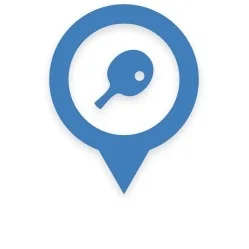English with Friends
Leveraging How I Met Your Mother
What is it?
A pilot program that pairs refugees with native English speakers and similar community groups to converse and watch popular American TV shows and movies. We gather volunteers from the tech community to serve as native speaker facilitators and to offer their offices to host the event. Through this pilot, we hope that participants will improve their English, increase American cultural immersion and built networking skills to improve their career mobility.
The Pivotal Pilot Program - MVP
The Preparation
Partner Organizations (HIAS) to help in the selection of a group of participants (5-10) along with a sponsor company (Pivotal Labs).
Participants register name, country of origin, age, english level, time available.
Set up a time on the weekend in event space to screen “How I Met Your Mother”
Sponsor company plans event time, place, suggest google maps to get to the office. (Suggestion to offer metro-cards to assist participants.)
The Event
Set up movie, name tags, small groups of refugees from a similar community to 1 native speaker.
Introduction, meet & greet, hand our material (name tags, index cards).
Participants view and writes down words and time stamps of things you want to discuss.
Facilitator assist in conversation about the show, only in English.
Retrospective and feedback (in English).
Apply learnings for next iteration
Where did this idea come from?
Not only do refugees have a lack of resources to help them beyond basic survival needs, but they are often placed in areas with no native community support and have limited English abilities. As such, our team participated in a day long hackathon that had us tackle the problem of helping refugees advance their English proficiency with the goal of reducing language roadblocks that refugees face when applying for higher paying jobs.
Within the employment problem, we delineated to first choosing how to empower refugees to enter medium-skilled jobs, but soon realized the core dependency and importance of speaking English proficiently and confidently with native speakers. Through interviewing subject matter experts and refugees themselves, we decided to focus on how might we enable refugees to practice and build confidence speaking English while also understanding the cultural colloquialisms.
We identified that one of the most common methods of learning English is the use of watching popular American TV shows and movies for refugees. We then interviewed refugees and identified that an immediate need for them is being able to practice their English with native speakers. They wanted to practice and receive feedback on their English to feel more confident in a social and business setting. This is a core competency and barrier of entry to most jobs.
We believe that by enabling refugees to practice and build confidence in their English skills, that we can lower the barrier of entry to not only entry-level jobs, but education that can lead to higher paying and more secure careers.
We also opted out of a technology solution until we could validate this was an effective way for refugees to learn English.







